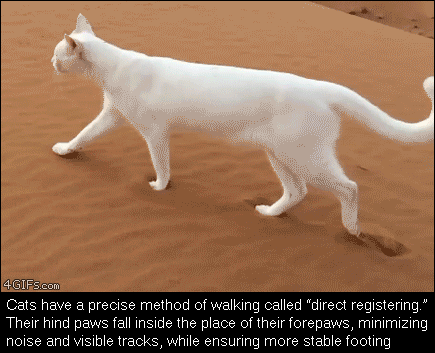Chaotic Behaviour In 50-link Pendulum.

Chaotic behaviour in 50-link pendulum.
More Posts from Science-is-magical and Others
Ok, so I don’t know how I ended up here and woah!
they made

characters

for

every

single

element

of the

periodic

table!

And also they made this

and this

*new ship*
There’s even a granny!

It’s like

superheros

(there’s a guy who looks like Hulk btw)

and humans

and there are

twins!!

And Bethoveen

THEY MADE THOR

And there’s also this which made me laugh

I can’t!

(source)
A puzzling expected value
Pick a (uniformly) random real number from the unit interval [0,1] and repeat this until the sum of all chosen numbers exceeds 1. What is the expected number of real values you will pick?
The quite surprising answer is Eulers constant, e ≈ 2.71828.
A demonstration can be found on Wolfram MathWorld.
cyanobacterium: i have made Oxygen
chemotrophs: you fucked up a perfectly good planet is what you did. look at it. it’s all rusty





Bonus comic!
Yahoo! Einstein was right again! :D We now have our first detection of gravitational waves!
http://www.nytimes.com/2016/02/12/science/ligo-gravitational-waves-black-holes-einstein.html?_r=0
http://www.space.com/17661-theory-general-relativity.html

Words matter when talking about Alzheimer’s
Using war metaphors in reference to Alzheimer’s disease should be replaced with messages of resilience against a complex, age-associated condition that may not be fully defeatable, according to a team of researchers.
Framing a health issue through comparisons to warfare is common in popular media and medical and research communities. While it can motivate efforts to deal with the issue, this type of language and messaging can also create fear and stigma, turn patients into victims and divert resources from critically important prevention and care, said Daniel R. George, assistant professor of medical humanities, Penn State College of Medicine.
Despite decades of failures in Alzheimer’s drug development, scientific attention continues to focus on drugs that “attack” a molecular compound called beta amyloid, with the goal of curing the disease. Amyloid is a key component of the plaques in the brain that are a hallmark of Alzheimer’s disease. Research, however, shows that the appearance of amyloid does not correlate with clinical symptoms and beta amyloid has repeatedly been found in the brains of one-third of “normal” elderly people. This suggests that amyloid may be a symptom rather than a cause of damage. A growing number of researchers believe that declaring “war” on Alzheimer’s by “attacking” amyloid may ultimately be an exercise in self-harm, particularly if amyloid is representative of the brain’s repair response, and may be channeling resources away from other drug-based approaches that do not assume amyloid toxicity.
Scholars have argued that metaphors and narratives that treat disease as something to be attacked can be socially damaging to those affected. The value of such metaphors may be clearer for infectious diseases caused by single pathogens. It becomes more problematic when discussing diverse, age-associated syndromes like Alzheimer’s that may not be fully curable. In this way, war metaphors in medicine can invite ways of thinking that may not be scientifically or socially productive.
“If applied in a careless manner, war metaphors can delude our sense of what’s possible therapeutically, and give false hope to people and caregivers who are suffering,” George said.
George and his co-authors propose moving toward different types of metaphors – those that encourage use of words like “slow” or “postpone” rather than “prevent” or “cure,” and emphasize building “resilience” to aging processes in the brain rather than aiming at “absolute victory” over a disease. While “fighting” and “defeating” Alzheimer’s through drug development is important, the authors argue it may be wiser to acknowledge that Alzheimer’s is not a disease disconnected from the aging process like polio or malaria. The authors note that Alzheimer’s has been classified as a disease for the past 40 years. They suggest it may be more beneficial to take a lifespan-oriented approach that includes education about known biological, psychosocial and environmental risk factors, investment in societal programs and infrastructure that support brain health, and ensuring proper care for those affected and their caregivers.
“While not as profitable as drug development, public health initiatives that reduce vascular risk factors, modulate oxidative stress and inflammation, guard against traumatic brain injuries, promote social engagement and lifelong learning, and reduce exposure to neurotoxins, and other commonsense actions should be an explicit component of our societal response (to Alzheimer’s),” the researchers wrote in the American Journal of Bioethics.
George drew particular attention to the residents of Flint, Michigan being exposed to lead, a neurotoxin, through the water supply.
“It is inexcusable that we could let our public infrastructure fail to the point where it becomes a contributor to Alzheimer’s disease risk for socio-economically disadvantaged citizens,” George said. “If we’re really serious about addressing the problem of Alzheimer’s, we must start by not poisoning our citizens.”
Moving beyond the notion of being at war against Alzheimer’s could also serve to humanize cognitive aging.
“There’s a widely-accepted myth that people who have Alzheimer’s are sort of non-people, akin to zombies,” George said. “There are ways to construct meaning around memory loss that show greater compassion and solidarity toward people with cognitive frailty rather than seeing them as passive victims in our biological war against the disease. We believe in a more humane message – that even if you have a diagnosis of ‘probable Alzheimer’s’ you can still have a life with deep purpose, social contribution and meaningful relationships.”
-
 beachchairbookworm liked this · 2 years ago
beachchairbookworm liked this · 2 years ago -
 godelitonthemountain reblogged this · 4 years ago
godelitonthemountain reblogged this · 4 years ago -
 godelitonthemountain liked this · 4 years ago
godelitonthemountain liked this · 4 years ago -
 merakishrutara liked this · 5 years ago
merakishrutara liked this · 5 years ago -
 volavalov liked this · 6 years ago
volavalov liked this · 6 years ago -
 tomathi reblogged this · 6 years ago
tomathi reblogged this · 6 years ago -
 samooooi18 liked this · 6 years ago
samooooi18 liked this · 6 years ago -
 toasterunderthesea liked this · 6 years ago
toasterunderthesea liked this · 6 years ago -
 imsadkitten liked this · 6 years ago
imsadkitten liked this · 6 years ago -
 vigormancha liked this · 6 years ago
vigormancha liked this · 6 years ago -
 anonymouslyunreal reblogged this · 6 years ago
anonymouslyunreal reblogged this · 6 years ago -
 anonymouslyunreal liked this · 6 years ago
anonymouslyunreal liked this · 6 years ago -
 vacuously-true reblogged this · 6 years ago
vacuously-true reblogged this · 6 years ago -
 strictly-script liked this · 6 years ago
strictly-script liked this · 6 years ago -
 hippieflowergrungechild-blog liked this · 6 years ago
hippieflowergrungechild-blog liked this · 6 years ago -
 uuuuuhhhhhhhhhhhhhhhhhh liked this · 6 years ago
uuuuuhhhhhhhhhhhhhhhhhh liked this · 6 years ago -
 canoscenza liked this · 6 years ago
canoscenza liked this · 6 years ago -
 leafmehangin reblogged this · 6 years ago
leafmehangin reblogged this · 6 years ago -
 leafmehangin liked this · 6 years ago
leafmehangin liked this · 6 years ago -
 lakeeffectsnow liked this · 7 years ago
lakeeffectsnow liked this · 7 years ago -
 w14x426 reblogged this · 7 years ago
w14x426 reblogged this · 7 years ago -
 theboysporkwonder liked this · 7 years ago
theboysporkwonder liked this · 7 years ago -
 odyssey420 liked this · 7 years ago
odyssey420 liked this · 7 years ago -
 mileysyrups liked this · 7 years ago
mileysyrups liked this · 7 years ago -
 saturnsizedtoaster liked this · 7 years ago
saturnsizedtoaster liked this · 7 years ago -
 science-is-magical reblogged this · 7 years ago
science-is-magical reblogged this · 7 years ago -
 morzowo liked this · 7 years ago
morzowo liked this · 7 years ago -
 demperio-blog liked this · 7 years ago
demperio-blog liked this · 7 years ago -
 multiverseman liked this · 7 years ago
multiverseman liked this · 7 years ago -
 tepology liked this · 7 years ago
tepology liked this · 7 years ago -
 vezvezvezvez reblogged this · 7 years ago
vezvezvezvez reblogged this · 7 years ago -
 quantumchaostidalwave reblogged this · 7 years ago
quantumchaostidalwave reblogged this · 7 years ago -
 octophi liked this · 7 years ago
octophi liked this · 7 years ago -
 strangewastelandpersona liked this · 7 years ago
strangewastelandpersona liked this · 7 years ago -
 dynablino liked this · 7 years ago
dynablino liked this · 7 years ago -
 finn-is-alive reblogged this · 7 years ago
finn-is-alive reblogged this · 7 years ago -
 the-androgyny-kid reblogged this · 7 years ago
the-androgyny-kid reblogged this · 7 years ago -
 the-androgyny-kid liked this · 7 years ago
the-androgyny-kid liked this · 7 years ago -
 southernottersstuff liked this · 7 years ago
southernottersstuff liked this · 7 years ago -
 komissar-bav liked this · 7 years ago
komissar-bav liked this · 7 years ago









